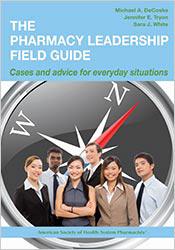About the Bill
The Pharmacy and Medically Underserved Areas Enhancement Act (H.R. 2759/S.1362) is bipartisan legislation that will amend section 1861 (s) (2) of the Social Security Act to include pharmacists on the list of recognized healthcare providers.
Ask your member of Congress to cosponsor this important legislation that will expand access to care for patients who need the critical services that you provide.
Our Supporters
- David McKinley (R-WV)
- G.K. Butterfield (D-NC)
- Charles Grassley (R-IA)
- Robert Casey (D-PA)
- Sherrod Brown (D-OH)
The bill was introduced in the House of Representatives by Reps. G.K. Butterfield (D-NC) and David McKinley (R-WV). A companion bill was introduced in the Senate by Senators Charles Grassley (R-IA), Robert Casey (D-PA), and Sherrod Brown (D-OH).
Frequently Asked Questions
Q – What does the legislation do?
A - Physicians and some non-physician healthcare professionals are reimbursed for their healthcare services under Medicare Part B. With some very limited exceptions, pharmacists are not reimbursed in this manner. As a result, the lack of reimbursement of pharmacists for services provided within their state scope of practice unnecessarily limits patient access to certain healthcare services. This bill would allow pharmacists to be reimbursed for certain healthcare services under Medicare Part B in medically underserved areas. Specifically, the bill allows for Part B reimbursement in Medically Underserved Areas (MUAs), Medically Underserved Populations (MUPs), or Health Professional Shortage Areas (HPSAs) as designated by the U.S. Department of Health and Human Services’ Health Resources and Services Administration (HRSA).
Q – Who are the lead sponsors of the bill?
A – The bill is being led by Senator Chuck Grassley (R-IA), Senator Robert Casey (D-PA), Senator Sherrod Brown (D-OH), Rep. G.K Butterfield (D-NC), Rep. David McKinley (R-WV).
Q – Is this new legislation?
A – No. The bill was first introduced in the 113 th Congress on the House side. It was introduced in both the House and Senate in the 114th and 115th Congress. During the 114 th and 115 th Congress, the bill received close to 300 cosponsors on the House side and a little over 50 cosponsors on the Senate side.
Q – How is this different than the version we sought to include in the COVID-19 legislation?
A – Last year the provider status coalition lobbied Congressional leaders to advance a narrower version of provider status, which would allow for Medicare Part B reimbursement for the testing of COVID-19 and influenza. Unfortunately, this was not included in the COVID-19 legislation.
Q – Is there any open opposition to this bill?
A – We are not aware of any organization officially opposing this legislation.
Q – Is there a CBO score for this yet?
A – No. We currently do not have a CBO score.
Q – How would pharmacists be reimbursed under this bill?
A - Consistent with Medicare reimbursement for other non-physician practitioners, pharmacist services would be reimbursed at 85% of the physician fee schedule.
I want to help. What can I do to help pass this legislation?
ASHP encourages members to reach out to your members of Congress via email to ask them to support legislation that addresses pharmacists“ lack of provider status. A next step would be to set up a meeting with your representative at his or her district office. You should also pursue hosting the legislator at your practice site.
Congressional Talking Points
Congressional Talking Points for the Pharmacy and Medically Underserved Areas Enhancement Act can be found here.


